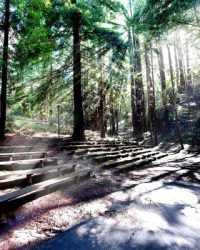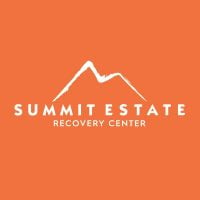Co-Occurring Disorder Treatment , Camp Recovery
Drug Rehab Center in Scotts Valley, California
Camp Recovery is a California-based addiction treatment facility that provides a range of levels of care and aftercare support, with experienced staff dedicated to helping individuals overcome addiction and dual diagnosis issues.
About This California Facility
Co-Occurring Disorder Treatment, Camp Recovery is an addiction treatment facility located in Scotts Valley, California. This facility is dedicated to helping individuals who are suffering from alcoholism, opioid addiction, substance abuse, dual diagnosis, and drug addiction. With a focus on providing comprehensive and personalized care, Camp Recovery offers a range of treatment options to meet the individual needs of each client. These options include aftercare support, detoxification services, drug rehabilitation, dual-diagnosis treatment, intensive outpatient programs, outpatient programs, and residential levels of care. Additionally, Camp Recovery accepts private health insurance, making it accessible to individuals seeking treatment and support for their addiction recovery journey.
At Co-Occurring Disorder Treatment, Camp Recovery, clients can expect a wide array of services and treatment methods designed to aid them in their quest for sobriety. The facility offers detoxification services to help individuals safely withdraw from substances. Following detox, clients have access to comprehensive drug rehabilitation programs that address both the physical and psychological aspects of addiction. These programs may include individual and group therapy sessions, cognitive-behavioral therapy, holistic approaches such as yoga and meditation, and 12-step recovery programs. Furthermore, Camp Recovery provides dual-diagnosis treatment for those struggling with mental health issues alongside addiction, ensuring that each client receives integrated care for both conditions. With a commitment to individualized care and a range of treatment options, Co-Occurring Disorder Treatment, Camp Recovery is dedicated to empowering individuals on their journey to recovery from addiction.
Genders
Ages
Modality
Additional
Conditions and Issues Treated
Substance abuse typically leads to addiction, which requires specialized treatment programs at Co-Occurring Disorder Treatment , Camp Recovery to address. Many people benefit from inpatient drug rehabilitation, which includes inpatient acute care and residential rehabilitation. Other levels of care include intensive outpatient therapy, individual counseling, and support groups. Family therapy is also an essential part of treatment for substance abuse.
A combination of treatments is often needed to treat drug abuse issues effectively. In the case of drug abuse, there is no easy answer or one-size-fits-all cure.
Opioid addiction treatment helps people addicted to opioids in California curb their drug use. The selection of a treatment setting depends on the severity of the addiction. Mild cases are usually treated in outpatient facilities; severe cases need hospitalization or treatment in a residential facility. Doctors use medicines along with counseling and behavioral therapies to treat the addiction. The treatment includes medication, counseling and therapy. It can also include group counseling, individual counseling and family counseling.
People with dual diagnosis have coexisting addiction and a mental disorder. 9.2 million US adults had a co-occurring disorder in 2018, so not just limited to California residents. Best treatment combines medication, psychotherapy (talk therapy), support group, and inpatient rehabilitation. Sometimes, complementary therapies – yoga, massage, and acupuncture – may also be used.
Levels of Care Offered at Co-Occurring Disorder Treatment , Camp Recovery
This center offers a variety of custom treatment tailored to individual recovery. Currently available are Aftercare Support, Detox, Drug Rehab, Dual-Diagnosis, Intensive Outpatient, Outpatient, Residential, with additional therapies available as listed below.
Detox is the stage of recovery where the drugs or alcohol are entirely removed from your body. There are two different ways to detox, with medications and without. For many drugs and alcohol, the acute phase of detox can be completed in a number of days.
Co-Occurring Disorder Treatment , Camp Recovery offers an Intensive Outpatient Program is for those who need intensive care but prefer to spend the majority of their time in the comfort of their own home. The rehabilitation services differ in length and intensity. They are customized to meet the needs of the patient.
Outpatient treatment plans cover diagnosis, detoxification, management, and counseling. They are a popular option for those who have graduated from inpatient facilities. Services in California include medication-assisted treatment (MAT) and individual and group therapy.
Residential treatment programs are those that offer housing and meals in addition to substance abuse treatment. Rehab facilities that offer residential treatment allow patients to focus solely on recovery, in an environment totally separate from their lives. Some rehab centers specialize in short-term residential treatment (a few days to a week or two), while others solely provide treatment on a long-term basis (several weeks to months). Some offer both, and tailor treatment to the patient’s individual requirements.
After treatment, addiction treatment can be frightening for newly sober people. Aftercare support provided by Co-Occurring Disorder Treatment , Camp Recovery is designed to give resources and help on a continued basis. It can involve finding housing in and around California, setting up 12-step meeting groups, continued medical monitoring, and counseling.
Therapies & Programs
Couples therapy aims to rebuild the trust between the partners. Partner’s involvement in the process will result in greater chances of treatment success. Couples therapy addresses financial issues, loss of trust, lack of intimacy, and physical abuse.
Family therapy is a set of therapeutic approaches that assumes that the entire family is a system. It utilizes the strengths and resources of the family to help the patient refrain from resorting to substance abuse. The impact of substance abuse is not just on the patient but on the entire family. Family therapy ensures that the patient gets adequate support from the family members after the treatment making the recovery process sustainable
- Family therapy guides all the members of the family to help the patient.
- It helps to repair relationships and improve communication between family members.
- It helps to keep the patient engaged and motivated throughout the treatment.
Group therapy is an important tool in recovery. Finding a peer group in Scotts Valley, CA and others who relate to your situation is a fundamental tool for recovery at Co-Occurring Disorder Treatment , Camp Recovery. Addiction tends to lead to isolation and feelings of uniqueness. The accountability and friendship that is found in group therapy can be more effective than any single other treatment approach. This is generally introduced early in recovery and is recommended as a lifetime treatment habit.
Trauma therapy is a way of addressing trauma while in a safe situation in order to heal. This may involve Co-Occurring Disorder Treatment , Camp Recovery managing individual or group counseling or both. Other forms of therapy have been proven to assist in healing past traumas.
A type of cognitive-behavioral therapy is Dialectical Behavioral Therapy. It is intended for those who are vulnerable to self-harm and suicidal thoughts. Co-Occurring Disorder Treatment , Camp Recovery aims to help patients understand the connection between their feelings, emotions, and behaviors and provide them with the tools to make a difference in Scotts Valley, CA. For those whose addictions and habits originate from severe mental health problems, it is beneficial.
Negative feelings are common in substance abuse disorders. If not recognized, they can cause co-occurring disorders. CBT involves strategies that help to change the thinking and behavioral pattern. It can be administered as a monotherapy as well as a part of combination therapy.
Rational Emotive Behavioral Therapy (REBT) is a variation of Cognitive Behavioral Therapy (CBT) that helps people understand how maladaptive, negative, and habitual thoughts and feelings lead to bad life choices. REBT is based on the idea that people operate under many irrational but habitual patterns of thought that fuel harmful practices.
The first three steps depend on the patient, so they are more specific and situational. The succeeding four steps center on practical issues brought on by substance abuse. Steps 8 and 9 deal with the social and emotional repercussions of addiction, encouraging patients to make amends to people they have wronged. These are followed by two steps revolving around the further exploration and reinforcement of Steps 1 to 9.
The last step requires an individual to extend a helping hand to people who are still in the early stages of their recovery.
Patient Experience
Creative Arts
Creative arts therapy, or expressive therapy, is beneficial to those battling addiction. It can include writing, music, drama, art and other forms of self-expression. It improves the patient’s emotional state and allows them to focus on something other than addiction. It allows Co-Occurring Disorder Treatment , Camp Recovery to examine how their feelings and emotions play out through the creative process.
Experiential Therapy at Co-Occurring Disorder Treatment , Camp Recovery
Experiential therapy works by using tools and activities to recreate past experiences. Role-playing, arts and crafts, music, animal care, rock climbing, etc. are some of the activities used in this therapy. It is different from medication and talk therapy and suits those who have difficulty expressing themselves.
Payment Options Accepted
For specific insurance or payment methods please contact us.
Is your insurance accepted?
Ask an expert, call (888) 674-0062
Additional Details
Specifics, location, and helpful extra information.
Scotts Valley, California 95067 Phone Number(855) 646-6998 Meta DetailsUpdated November 25, 2023
Staff Verified
Patient Reviews
There are no reviews yet. Be the first one to write one.
Scotts Valley, California Addiction Information
More than 3 million of California's citizens are addicted to illegal drugs. Almost 800,000 people use hard drugs, almost 5 million use marijuana, and another 2.1 million abuse alcohol every year. Other substance abuse issues such as binge drinking and teen drug use are also common. Many illegal drugs such as cocaine, heroin, methamphetamine, and marijuana are smuggled into the state from Mexico.
Treatment in Nearby Cities
- Encino, CA (280.0 mi.)
- Greenbrae, CA (68.9 mi.)
- Stanton, CA (318.4 mi.)
- Burlingame, CA (41.7 mi.)
- Lakeside, CA (408.5 mi.)
Centers near Co-Occurring Disorder Treatment , Camp Recovery
The facility name, logo and brand are the property and registered trademarks of Co-Occurring Disorder Treatment , Camp Recovery, and are being used for identification and informational purposes only. Use of these names, logos and brands shall not imply endorsement. RehabNow.org is not affiliated with or sponsored by Co-Occurring Disorder Treatment , Camp Recovery.







